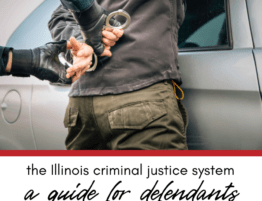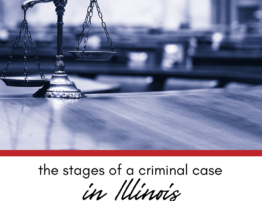
If police start asking you questions, what are you supposed to say?
Naturally, it depends on what you did (or didn’t do), and whether you’re accused of a felony or misdemeanor… doesn’t it?
Actually, in most cases, it’s best to use your right not to incriminate yourself by talking to police at all.
What to Do if Police Stop You
If police stop you and begin asking you questions, whether you’re guilty or innocent, you have the right to ask them if you’re being arrested or if you’re free to leave. If they intend to arrest you, you won’t be free to leave—but you still don’t have to answer their questions. It doesn’t matter what type of crime they’re accusing you of committing.
The Fifth Amendment to the U.S. Constitution guarantees you the right to avoid incriminating yourself. What that means is that you have the right to avoid proclaiming your innocence or confessing your guilt; you don’t have to say anything.
You also have the right to have an attorney represent you and give you legal advice, so for most people, that means getting in touch with a Chicago criminal defense lawyer as soon as possible.
What to Do if You’re Arrested, but You’re Innocent
Tell the police that you’d like to get in touch with your attorney.
Many people mistakenly believe that if they’re innocent, working with an attorney will make them look guilty. This couldn’t be farther from the truth; smart people who are innocent of any wrongdoing know that an attorney can protect their rights and help them get the best possible outcome. Although the Illinois court system is designed to be fair, it’s still run by people—people who make mistakes; that means sometimes innocent people are convicted and sentenced to serve punishment for crimes they didn’t commit.
What to Do if You’re Arrested and You’re Guilty
If you’re guilty of the crime police are accusing you of committing, it’s still not better to talk to them and explain the situation. Police have been known to say things like, “If you just tell the truth right now, things will be easier for you” or “the consequences will be less severe if you confess now.”
You need to know that the police don’t have any influence on the outcome of your trial. They may testify, of course, and they will give your statements to the prosecution—but ultimately, the prosecutor will determine the charges and the judge will determine your sentence.
Your best bet is often to get in touch with a criminal defense attorney who can give you case-specific legal advice that fits your situation. You should only follow advice that comes directly from your attorney.
If you’ve been accused of a crime, call us at 847-920-4540 for your free case evaluation. We’ll be able to give you legal advice that meets your needs, and we’ll start developing a strategy that gets you the best possible outcome right away.










Write a comment: